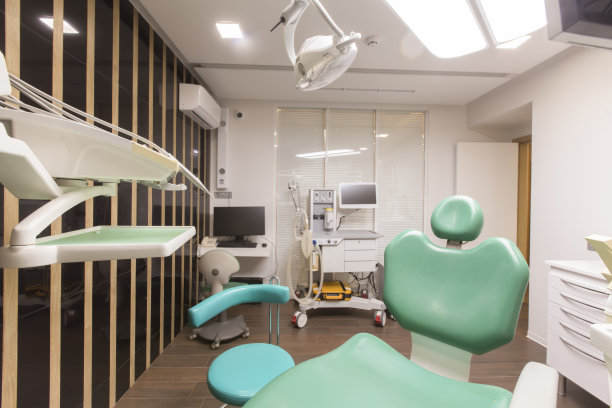Summary: Revolutionary advances in dental implant treatment are transforming smiles and enhancing the quality of life for patients worldwide. Recent innovations in materials and technology have made dental implants more accessible, permanent, and effective than ever before. This article explores four key aspects of these advances: improved biocompatibility of materials, advanced surgical techniques, personalized treatment planning, and the impact of technology on patient outcomes. Each of these factors contributes to a significant enhancement in patient experience, providing not just aesthetic improvements but also functional solutions and increased comfort. As these advances continue to evolve, they promise a new era in dental care where smiles can be restored and lives transformed.
1. Improved Biocompatibility of Materials

One of the most significant advancements in dental implants is the improvement in the biocompatibility of materials used. Traditionally, titanium has been the gold standard for dental implants due to its excellent strength and resistance to corrosion. However, recent developments have introduced new materials that enhance osseointegration, allowing implants to bond more effectively with the jawbone.
Innovative materials such as zirconia have emerged as alternatives to titanium. They offer aesthetic benefits, particularly for patients requiring implants in the front of the mouth where metal visibility can be an issue. These materials promote better integration with the surrounding tissues, reducing the likelihood of complications.
Furthermore, researchers are investigating surface treatments and coatings that encourage faster bone healing and minimize discomfort. These advancements ensure that patients experience less downtime and can enjoy their restored smiles sooner.
2. Advanced Surgical Techniques
The field of dental implant surgery has greatly benefited from advancements in surgical techniques. Minimally invasive procedures have become the norm, allowing for faster recovery times and reduced discomfort. Techniques such as flapless surgery, where incisions in the gums are minimized, help preserve the surrounding tissues.
Additionally, guided surgery has transformed the planning process for implant placement. Using 3D imaging and computer-aided design, dentists can now create precise surgical plans tailored to each patients unique anatomy. This precision minimizes the risk of complications and enhances the overall success rate of implant surgeries.
Training and specialization in these advanced techniques go hand in hand, ensuring that dental professionals are equipped to perform these procedures effectively. Such advancements enable a broad spectrum of patients to consider dental implants as a viable option for restoring their smiles.
3. Personalized Treatment Planning
Personalization in dental implant treatment has reached new heights, significantly improving patient satisfaction and outcomes. Each patient has unique needs regarding jaw structure, aesthetic goals, and overall health; thus, treatment plans are now designed to reflect individual circumstances.
Modern diagnostic tools, including cone beam computed tomography (CBCT), have made it possible for dentists to analyze the patients mouth in detail before creating a personalized treatment approach. This technology helps in identifying potential complications, planning for bone grafting when necessary, and choosing the most appropriate implant type and size.
Moreover, effective communication between the patient and the dental team ensures that expectations are aligned. Patients are more educated about their options, which fosters trust and a sense of involvement in their treatment journey, leading to better emotional well-being post-procedure.
4. The Impact of Technology on Patient Outcomes
Technological innovations continue to revolutionize dental implant treatment, directly impacting patient outcomes. Digital platforms and telehealth options have made consultations and follow-up care more accessible, ensuring that patients receive continuous support throughout their treatment.
Smart dental devices are now integrated into the implants themselves, allowing for real-time monitoring of healing and integration. This data can help dentists intervene quickly if complications arise, thereby enhancing overall treatment effectiveness.
The rise of artificial intelligence and machine learning in treatment planning has also shown promise in predicting treatment outcomes based on patient data. This capability allows for quicker, more informed decisions that can lead to better long-term results for patients.
Summary:
The revolutionary advances in dental implant treatment showcase a remarkable shift in how smiles can be restored effectively and comfortably. Through improved materials, advanced surgical techniques, personalized planning, and technological integration, dental implants have become a reliable and transformative solution for those seeking significant changes to their oral health.
This article is compiled by Vickong Dental and the content is for reference only.
Vickong Dental
Vickong Dental is a large medical group established in Hong Kong in 2008 by professors from well-known medical universities in Guangdong and Hong Kong, as well as medical doctors from key national '985' universities (including Master's supervisors and senior professors). The chain of branches brings together expert dentists with PhDs and Master's degrees from Hong Kong and Mainland China, committed to providing high-quality dental treatment.
"Vickong Dental Practices the University Motto of 'Healing and Serving Society,' with a Stable Operation for Sixteen Years. It Has Been honored with Hong Kong Enterprise Leaders's Choice,' and is a Global Trusted Implant Center for the Nobel Implant System. Recommended by Hong Kong Metro Broadcast and Guangdong Television, it Serves Customers from Over Thirty Countries and Regions, Gaining the Trust and Favor of Citizens from the Guangdong-Hong Kong-Macau Greater Bay Area and Surrounding Cities.

Thousands of customers' unanimous praise
The most recognized and highly recommended dental service by customers in the Guangdong-Hong Kong-Macau Greater Bay Area
We Ensure You Receive Detailed Care and Attention Here
Hong Kong standards, Shenzhen prices, Your Trusted English-speaking dentists

Vickong Dental Medical-Grade Instrument Disinfection Process
Vickong Dental Medical-Grade Instrument Disinfection Process

Vickong Dental Chain: A Warm and Comfortable Environment for Treatment






Appointment Hours

Q&A
Why choose Vickong Dental?
Vickong Dental practices the university motto 「Medicine to Benefit Society」, with each branch bringing together highly qualified dentists with doctoral and master’s degrees from Hong Kong and the Mainland, and has maintained seventeen years of steady operation。Recipient of 「2024 Hong Kong Enterprise Leaders Brand」, 「2025 Hong Kong Enterprise Leaders Brand」, a Nobel Biocare Global Trusted Implant Center, and a brand recommended by Metro Radio Hong Kong and Guangdong TV。
To date, we have served customers from more than thirty countries and regions,earning exceptionally high word-of-mouth recognition and trusted recommendations from residents across the Guangdong-Hong Kong-Macao Greater Bay Area and surrounding cities
We have eight major branches in Zhuhai、Shenzhen,and a consultation and service assurance center in Hong Kong,so you can book a free consultation at any time for any questions,which is very reassuring.
If I do not accept the quotation after the CT scan, will I be charged??
No! As long as the actual treatment has not started, you will not be charged any fees.
Will there be any additional charges during the treatment process?
No, there won’t be any additional charges. Before treatment begins, we will clearly explain the treatment plan and its corresponding fees. Only after the patient agrees and signs the consent form will we proceed with the dental service.
Can I pay in Hong Kong dollars?
Yes. Vickong Dental accepts payment in Hong Kong dollars. The amount will be converted based on the exchange rate of the day, and the applicable rate will be clearly communicated to you in advance.
Can I reschedule my appointment at any time?
Yes. Please contact us via **WeChat** or **WhatsApp** as early as possible, providing your original appointment time and details, along with your preferred new date and time slot for rescheduling.













